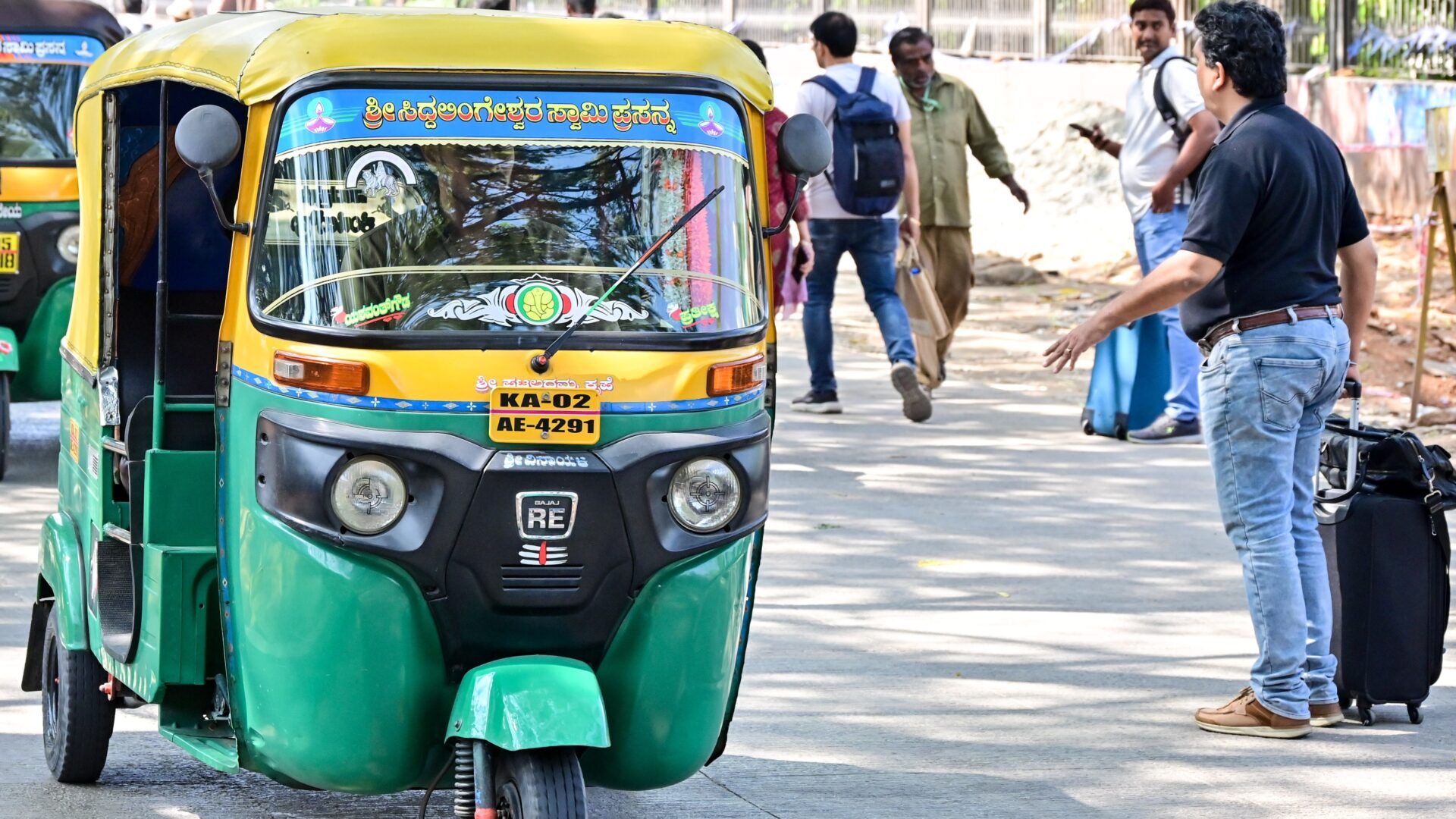Bengaluru, a rapidly expanding metropolitan hub, is grappling with an unusual economic paradox: the per-kilometre cost of a short auto-rickshaw journey within the city can now surprisingly outstrip the per-kilometre cost of a full flight between major Indian cities. With the city’s effective auto fare reportedly hovering around ₹36 per kilometre for short distances, this disparity raises significant questions about urban accessibility and the equitable nature of daily commutes. This startling comparison highlights a critical imbalance in the urban mobility ecosystem, demanding urgent attention for a more sustainable and inclusive transit future.
A deeper analysis reveals the stark contrast. A recent air journey between Mumbai and Bengaluru, spanning approximately 850 kilometres, might be secured for around ₹3,278, translating to an approximate cost of ₹3.86 per kilometre. This figure positions air travel at nearly nine times more economical per kilometre than a short auto-rickshaw ride in Bengaluru. Even luxury taxi services, while higher, may average around ₹40 per kilometre, still rendering auto-rickshaws among the most expensive point-to-point transport options within the city’s confines.
For longer inter-city distances, conventional rail services continue to offer unparalleled value. An AC sleeper class train ticket from Mumbai to Bengaluru, for an approximate 850-kilometre journey, could cost around ₹3,400, working out to roughly ₹4 per kilometre. This positions rail travel as either cheaper than or on par with flights for long hauls, undeniably offering superior value compared to intra-city auto-rickshaw fares. These figures underscore a systemic challenge where the initial and final segments of a journey within Bengaluru have become disproportionately burdensome.
In sharp contrast, public mass transit systems, such as the Bengaluru Metropolitan Transport Corporation (BMTC) buses and the Namma Metro, deliver remarkable affordability. BMTC bus tickets for distances up to 40 kilometres are available for approximately ₹30, translating to an astonishingly low ₹0.75 per kilometre. Similarly, Namma Metro charges about ₹10 for every 1.5 kilometres, equating to roughly ₹6.67 per kilometre, which is nearly one-sixth of the effective auto-rickshaw fare. This highlights a critical need for enhanced integration and greater accessibility to these cost-effective public transport alternatives.
The prevailing high cost of last-mile connectivity poses a significant barrier to urban mobility. While high-tech, high-speed inter-city options like air and rail travel become increasingly accessible, the disproportionate cost of the “final stretch” within Bengaluru creates an economic bottleneck for daily commuters. For instance, one could ostensibly travel from Mumbai to Bengaluru by air for a modest sum, only to then incur a substantial charge, perhaps ₹800, for a short auto-rickshaw ride from Kempegowda International Airport to a central locality like Indiranagar. This makes the concluding segment of a journey financially heavier per kilometre than the extensive inter-state flight.
This fare disparity raises critical questions concerning affordability, social equity, and the pursuit of a zero-net carbon future for Bengaluru. Auto-rickshaw unions often cite escalating fuel prices, maintenance costs, and the demand for equitable wages as factors driving higher base fares. However, the absence of dynamic pricing models or robust regulatory oversight often results in short-distance commuters paying exorbitant prices, particularly during peak hours or adverse weather conditions. Re-evaluating fare regulations, integrating comprehensive last-mile solutions, and incorporating autos into a more accountable, tech-enabled fare structure are imperative steps towards creating a truly sustainable, gender-neutral, and equitable urban transport system that serves all citizens without undue financial strain.
Also Read :Bengaluru Auto Fares Rise To Rs 36 Minimum From August 1


